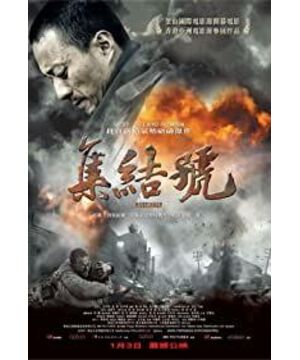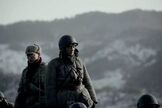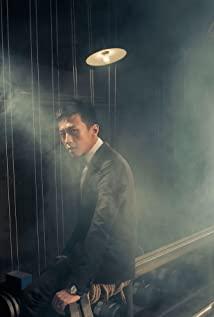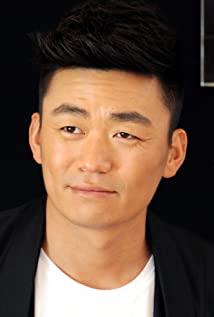So, what kind of movie is "Assembly" in my eyes? Let me say one word first: good. Two more words: good. If the seventh row in the screening room was occupied by myself, I think I should cry when Ren Quan was blown in two. It wasn't the "sacrifice" that moved me, but the realistic stunt that made my eyes water. Afterwards, the scene of the millet shooting the prisoners of war made my tear ducts swell again. Of course, this is not because of the friendship of war comrades, but the image of a soldier of the people's children whose personal emotions overwhelm the organizational principles was finally created in the domestic war film. What disappointed me the most about the war part of "Assembly" was the temporarily appointed instructor by Gu Zidi. The director obviously wanted him to be a prop for a brutal war, but there was little to no novelty about the role. From the beginning of the fear of war to the final demise with the position, the sublimation of personality is too far-fetched, and the existence of the clue of the instructor is easily reminiscent of similar roles in Hollywood war movies, with strong imitation traces. If the Wenhe blocking battle has always been played very naturally and realistically, then the "instructor" is the only unconvincing link in this battle.
There is no problem in using the anti-US (United Nations) aid to Korea as an excessive story. It may be due to the limitation of the length of the film. This section ended in a hurry without waiting for it to start, which made Gu Zidi's later fate somewhat blunt. However, Feng Xiaogang took the courage to test the "bottom line" here, so that the plot found an interface that was not too abrupt. The classic bridge that a martyr can exchange 700 pounds of millet quickly made up for the resulting shortcomings. Later, the grenade in Gu Zidi's hand turned into tear gas, and the movie entered a sensational part with a high profile. What impressed me most was the scene where Gu Zidi threw a chair at the county cadres. I can't say that I had the same anger as Gu Zidi at this time, but this detail really made me enjoy watching it. If it were me, I would compare it to Gu Zidi. Throw the chair faster and faster. It is also worth mentioning the role of the trumpeter. Among all the supporting roles, his performance is the most exciting. In the scene in front of the tomb of Liu Zeshui, the head of the regiment, Zhang Hanyu's light was completely covered by the "commander". When Gu Zidi waved the wine bottle and rushed to Liu Zeshui's tombstone, the commander's desperate attitude made the whole film instantly Full of tension. Every sacrifice is immortal. "Assembly" is the main topic here.
The Civil War theme is the reason why many people express disdain for "Assembly", and I think this kind of value is really vulnerable. Do you have to let a mainland director make a movie in which the Kuomintang defeated the Communist Party and you are satisfied? Civil war is naturally ugly, but it's not Feng Xiaogang's fault. To be fair, "Assembly" has tried its best to get rid of the subjective attitude brought about by ideology. The film not only did not vilify the image of the national army, but also did not try to render the sacrifice of the 9th Company as a so-called righteous party. Even when Gu Zidi was discussing for his comrades-in-arms, the way of expression in the film was still a bystander's point of view, even mixed with a little critical emotion. If "Assembly" can be screened in Taiwan, I think Taiwanese audiences will also be moved by this film, just like when we watch "An Inch of Rivers and Mountains, One Inch of Blood" produced in Taiwan, because the pain is no different. (Please don't refute me by taking "One" as the theme of the Anti-Japanese War.)
I don't agree with the statement that "Assembly" is the main theme movie. That alone would give four stars. Once upon a time, Feng Xiaogang was a director worth looking forward to. Now, he's starting to be respectable.
View more about Ji jie hao reviews











